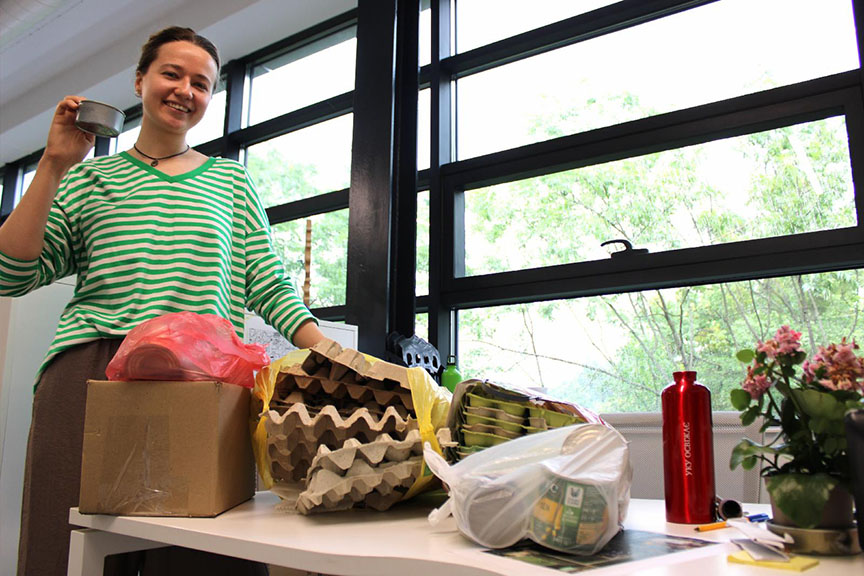
LVIV, Ukraine. College students often struggle in the kitchen, but at one Catholic university, they’re making food to help defend their country’s freedom.
For the past several months, Nataliia Batyhina, a development professional at Ukrainian Catholic University in Lviv, has headed up a small army of volunteers from the school to prepare food for front-line soldiers battling Russia’s invasion.
So far, she and her team have whipped up 30,000 energy bars, plus hundreds of flat cakes called “pliacky,” as well as salad preserves with shredded carrots, vinegar and seasonings. She then sends the meals to the front through established distribution networks.
Batyhina began the project days after Russia’s full-scale invasion of Ukraine in February 2022. The attack continued aggression dating back to 2014 with Russia’s illegal annexation of Crimea and the fomenting of separatist activities in Ukraine’s Donetsk and Luhansk provinces.
Along with “a couple of friends,” the 28-year-old Batyhina rolled up her sleeves to assemble as many as 600 to 700 energy bars in a day, each one a mixture of nuts and dried fruits that were “very good, actually – very natural, with no preservatives,” she told OSV News.
The initiative helped her and her fellow volunteers “stay together” when “it was emotionally very difficult to concentrate on anything except the news,” she said.
She was able to secure the use of two different professional kitchens located in Lviv, but eventually moved the project to the kitchen of Ukrainian Catholic University’s Emmaus House, a community home on the campus for adults with intellectual disabilities. The house is part of the university’s Emmaus Center, which promotes inclusiveness through disabilities awareness and family support.
University students and Emmaus House residents have since been diligently assembling the foodstuffs for the soldiers, who in combat can require between 3,600 to 6,000 calories per day.
The energy bars have been field tested for performance, said Batyhina, who received a call from a volunteer center in Dnipro demanding to know the recipe.
“They got some boxes from our kitchen and distributed them to their units, and one soldier spent more than 12 hours driving from one part of Ukraine to the other with only the energy bars to eat,” she said. “He didn’t want to eat when he was finished (the journey), and the center asked me, ‘What did you put in there?’”
Another soldier who handled procurement and logistics for his unit called to thank her for preserved salads.
“My friend had written my name and phone number on one of the plastic containers as a joke,” said Batyhina. “After five days, I got a call from Donbas, and he said the salads were really tasty and they were happy to have them. They had a chance to sit, eat and enjoy their meals.”
Still other soldiers have sent her pictures showing “a cup of coffee, our cakes and ammunition all together,” she said.
Batyhina and her team have expanded their lineup to include homemade trench candles, made of recycled cans, paraffin wax and cardboard.
The candles, which come in “small, medium and large” sizes, provide light, warmth and cooking heat without endangering troop positions through excessive brightness.
A Ukrainian Greek Catholic, Batyhina told OSV News the “most important thing” for her is communicating with and receiving feedback from the soldiers.
“All these short messages from the front line, all those calls make you feel like you are doing a good thing. I know they are standing there for us,” she said. “I see between the lines in those short messages that they are worrying about us … and they want to help us somehow with a call and some good news.”
Sometimes, however, “they can’t find good news, and then we are really stressed,” she admitted.
Yet both sides refuse to give up hope, she added.
“Sending all these cakes, sweets, pictures of my volunteers, good messages (shows) that we are still here, and we will not stop,” said Batyhina.









